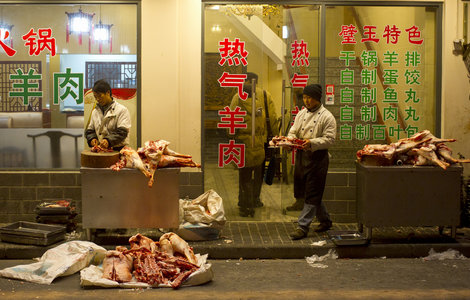
The legal aid system is an important part of a judicial system with Chinese characteristics. China started developing its legal aid system in 1994.
The Criminal Procedural Law, amended in 1996, and the Law on Lawyers, issued in the same year, both include content concerning legal aid.
The State Council issued Legal Aid Regulations in 2003, which established a basic framework for the legal aid system. The regulations also expounded upon government responsibilities, funding sources, system structures, scope of cases covered by legal aid, organization and enforcement, and legal liabilities of the legal aid system.
Twenty-eight provinces, regions and municipalities have amended or passed local regulations and rules regarding legal aid.
The institutional legal aid system comprises relevant regulations of the Criminal Procedural Law, the Law on Lawyers, the Law on Rights and Interests of the Aged, the Law on Rights and Interests of Women, and some 10 other laws, regulations, judicial explanations and documents. This system plays an important role in regulating and promoting the fast development of Chinese legal aid.
Who qualifies?
The intended beneficiaries of legal aid are citizens qualified for the aid according to a set of criteria established by the regulation. Legal representatives, social organizations and welfare agencies are not eligible for legal aid. Citizens, except defendants in certain criminal cases, must go through investigations regarding their economic conditions and their legal affairs before obtaining legal aid.
According to the latest Criminal Procedural Law, the public security departments, People's Procuratorate and People's Courts should inform legal aid agencies, which should designate lawyers and provide legal aid without investigation into economic conditions for blind, deaf and mute suspects or defendants.
Eligible recipients also include psychologically challenged people who have not completely lost the abilities to control their actions as well as juveniles and defendants who may be sentenced to lifelong imprisonment or a death sentence.
If defendants do not meet one of the aforementioned requirements, then their eligibility will be judged based on economic hardship.
National regulations authorize governments of municipalities directly under central government control, provinces and autonomous regions to establish standards for economic hardship in their administrative regions. These standards should generally ensure that citizens living below the minimum subsistence level get legal aid. For developed regions, the standards should be above the lowest subsistence level.
In recent years, more and more places have increased the standards for economic hardship to about 1.5 to 2 times that of the lowest subsistence income level. Beijing, Shanghai and Guangdong province use a low income level as the standard rather than a subsistence-level income, so legal aid can benefit a larger group of people.







